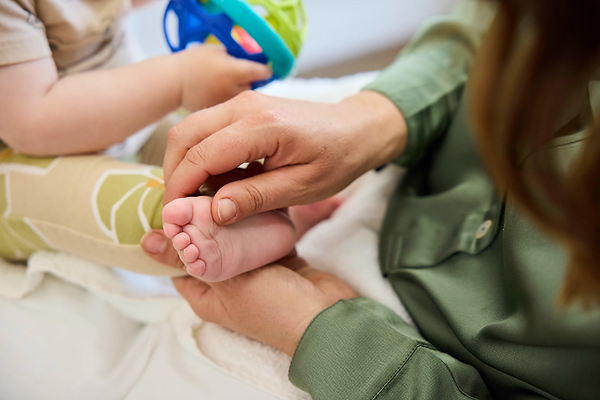RETAINED PRIMITIVE REFLEXES

Primitive reflexes are involuntary movements that originate in the brain stem and are present from birth, helping babies with essential functions like locating and attaching to the breast, sucking, and swallowing.
These reflexes usually fade as a baby’s brain matures, giving way to more advanced postural reflexes that control balance, coordination, and motor development.
In some cases, these primitive reflexes can remain active beyond infancy, indicating that the central nervous system (CNS) may still be developing. Studies have shown that school-aged children who retain primitive reflexes may struggle with motor skills and postural stability, which can impact their daily activities and learning.
Dr Kirsty (osteopath) uses Rhythmic Movement Training (RMT) to help address retained primitive reflexes. With just a few minutes of daily movement exercises practised over a few months, RMT can support neurological development in children of all ages.
Parents often find RMT to be a cost-effective and time-efficient way to support their child’s growth. RMT may be beneficial for children experiencing anxiety, learning difficulties (including dyslexia), low muscle tone, poor balance and posture, as well as those with ADD/ADHD and ASD.


Book Online

Dr Kirsty Greenwood has extensive training in the treatment of children and babies and has completed extensive postgraduate training in paediatrics and pregnancy care to ensure delivery of excellence in osteopathic healthcare. Many families bring their children of all ages to see her for many reasons.
She is passionate about treating children and has over 20 years of experience in paediatric care.







